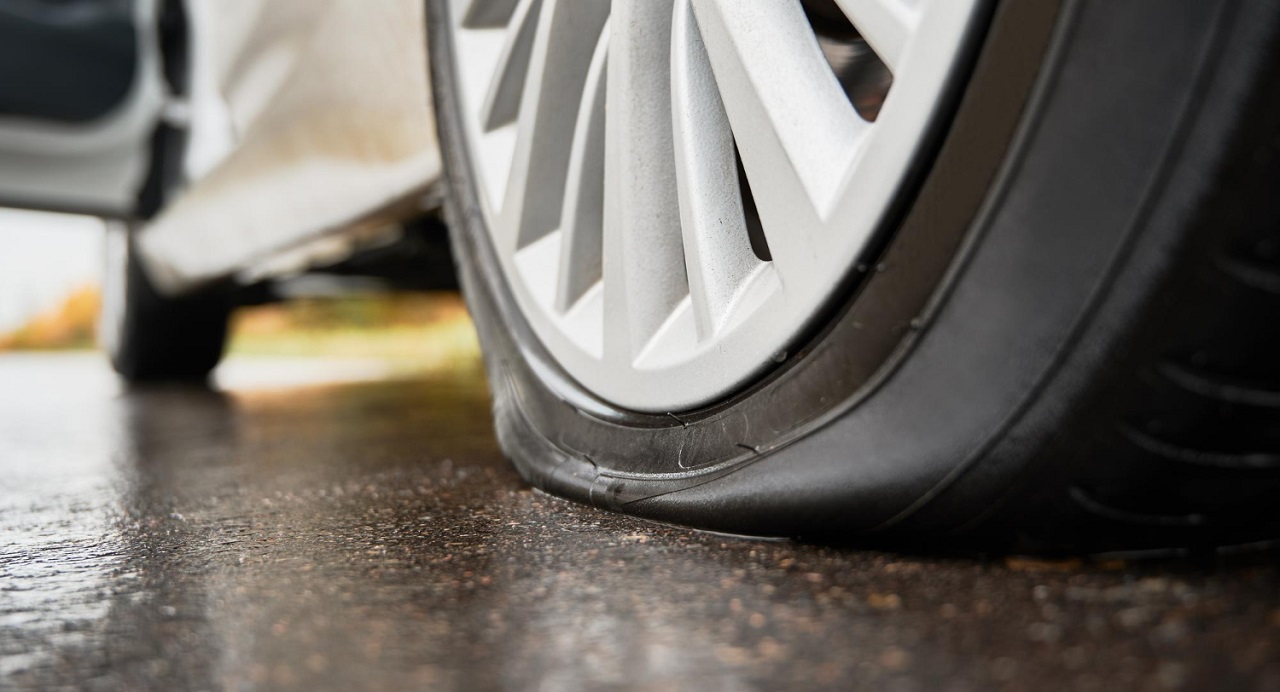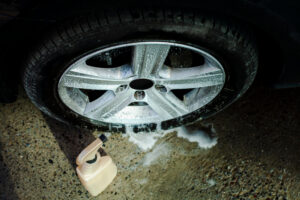Common Causes Of Flats
It’s a fact of life: eventually, we all get a flat tire. Flats can happen for any number of reasons- from running over a sharp object to getting a hole in the tire. Sometimes if it happens abruptly, you can even meet an accident if you can’t control your vehicle. But don’t worry, there are ways to prevent flats and minimize the chances of having one while out on a ride. Check out our list of the most common causes of flats, so you can be prepared!
Punctures
Punctures are the most common type of flat, accounting for around 60% of all flats. They are usually caused by small pieces of glass or metal that penetrate the tire and inner tube. If you’re unlucky enough to get a puncture, there’s not much you can do except replace the tire and hope it doesn’t happen again.
One way to minimize the chances of getting a puncture is to avoid riding over debris on the road. Make sure to scan the surface in front of you for any sharp objects that could cause a problem, and try to avoid them if possible. If you can’t avoid them, try to ride over them as perpendicularly as possible. This will help to minimize the chances of the object piercing the tire.
You can also purchase tires that are specifically designed to resist punctures. These tires often have Kevlar or other materials woven into the tire itself, which helps to reinforce it and make it more resistant to punctures. If you’re worried about getting a flat, investing in a good set of puncture-resistant tires is always a good idea.
Under-inflation
Under-inflated tires are one of the leading causes of flats, accounting for around 30% of all flats. When a tire is under-inflated, it puts extra stress on the sidewalls of the tire. This can cause the tire to wear down faster and eventually develop a hole or crack.
To avoid flats due to under-inflation, it’s important to regularly check the pressure of your tires. Most tires have a recommended pressure range that you should aim for usually between 80 and 120 PSI. Use a good quality air pump to inflate your tires to the proper pressure, and check them regularly to make sure they haven’t lost any air.
Over-inflation
While under-inflation is one of the leading causes of flats, over-inflation can also be a problem. Over-inflated tires are more likely to get punctures, as the extra pressure makes them more susceptible to puncturing when they come into contact with sharp objects. Over-inflation can also cause the tire to wear down faster and eventually develop a hole or crack.
Similar to under-inflated tires, you can also prevent tires from being flat due to over-inflation by always checking the pressure of the car tires. Make sure that you stay within the recommended range. If you don’t know what that is, you can always check your car’s manual.
Rim Cuts
Rim cuts are another common type of flat, accounting for around 10% of all flats. They occur when the tire rubs against the edge of the rim, usually due to improper tire installation or riding on a damaged rim. This can cause a small cut in the tire, which eventually leads to a flat.
To avoid rim cuts, it’s important to make sure that your tires are properly installed on the rims. If you’re not sure how to do this, you can always take them to a professional to have them installed.
You should also inspect your rims regularly for any damage that could cause the tire to rub against them. If you see any damage, make sure to get it fixed before it leads to a flat tire.
Old Tires
As tires age, they become more susceptible to flats. This is because the material of the tires starts to break down and deteriorate over time. This makes them more likely to develop holes and cracks, which eventually lead to flats.
To avoid flats due to old tires, it’s important to regularly inspect your tires for any signs of wear and tear. If you see any cracks or holes, it’s time to replace the tire.
It’s also a good idea to keep an eye on the tread depth of your tires. As the tread wears down, the tire becomes less effective at gripping the road and more susceptible to flats. Most tires have tread depth indicators that let you know when it’s time to replace them.
Improper Tire Installation
If your tires are not installed properly, it can lead to flats. This is because the tire can rub against the rim, which can cause cuts or other damage that eventually leads to a flat.
To avoid flats due to improper tire installation, it’s important to make sure that your tires are installed correctly. If you’re not sure how to do this, you can always take them to a professional to have them installed.
Conclusion
There are a number of common causes of flats, but by knowing what they are, you can help avoid them. Always check the pressure of your tires, inspect them regularly for any damage, and replace them when they start to show signs of wear and tear. By taking these precautions, you can help keep your tires in good condition and avoid flats.
Whenever you have a flat tire anywhere in Memphis, TN, you should immediately call on Trustworthy Towing Service. Their reliable mobile flat tire repair service can help you change your tire or bring you a tire suitable for your vehicle.



